Wi-Fi capacity requirements in office buildings, classrooms, and retail venues are rapidly raising due to increase in Wi-Fi connected devices, non-Wi-Fi IoT devices and bandwidth-hungry applications.
The RUCKUS® R650 access point (AP) with the latest Wi-Fi 6 (802.11 ax) technology delivers increased capacity, improved coverage and performance in dense environments. The R650 is our mid-range dual-band, dual-concurrent AP that supports six spatial streams (4x4:4 in 5GHz, 2x2:2 in 2.4GHz). The R650 supports peak data rates of up to 2974 Mbps and efficiently manages up to 512 clients connections. Furthermore, 2.5GbE Ethernet ensures the backhaul will not be a bottleneck for full use of available Wi-Fi capacity.
Also, wireless requirements within enterprises are expanding beyond Wi-Fi with BLE, Zigbee and many other non-Wi-Fi wireless technologies resulting in creation of network silos. Enterprises need a unified platform to eliminate network silos. The RUCKUS AP portfolio is equipped to solve these challenges.
The R650 has built-in IoT radios with onboard BLE and Zigbee capabilities. In addition, the R650 is a converged access point that allows customers to seamlessly integrate any new wireless technologies with the pluggable IoT module.
The R650 is packed with Ruckus patented technologies in addition to Wi-Fi 6 features such as OFDMA, MU-MIMO and TWT. The R650 is ideal for medium-density deployments such as office buildings, K-12 classrooms, libraries and retail venues.
The R650 Wi-Fi 6 AP incorporates patented technologies found only in the Ruckus Wi-Fi portfolio.
- BeamFlex+ Antennas: Extended coverage and optimized throughput with patented multi-directional antennas and radio patterns
- ChannelFly: Improved throughput with dynamically changing the channels to use least congested channel
- Ruckus Ultra-High-Density Technology Suite: Dramatically improved network performance with technologies such as Airtime Decongestion, Transient Client Management etc.
Whether you are deploying ten or ten thousand APs, the R650 is also easy to manage through Ruckus’ physical and virtual management options.
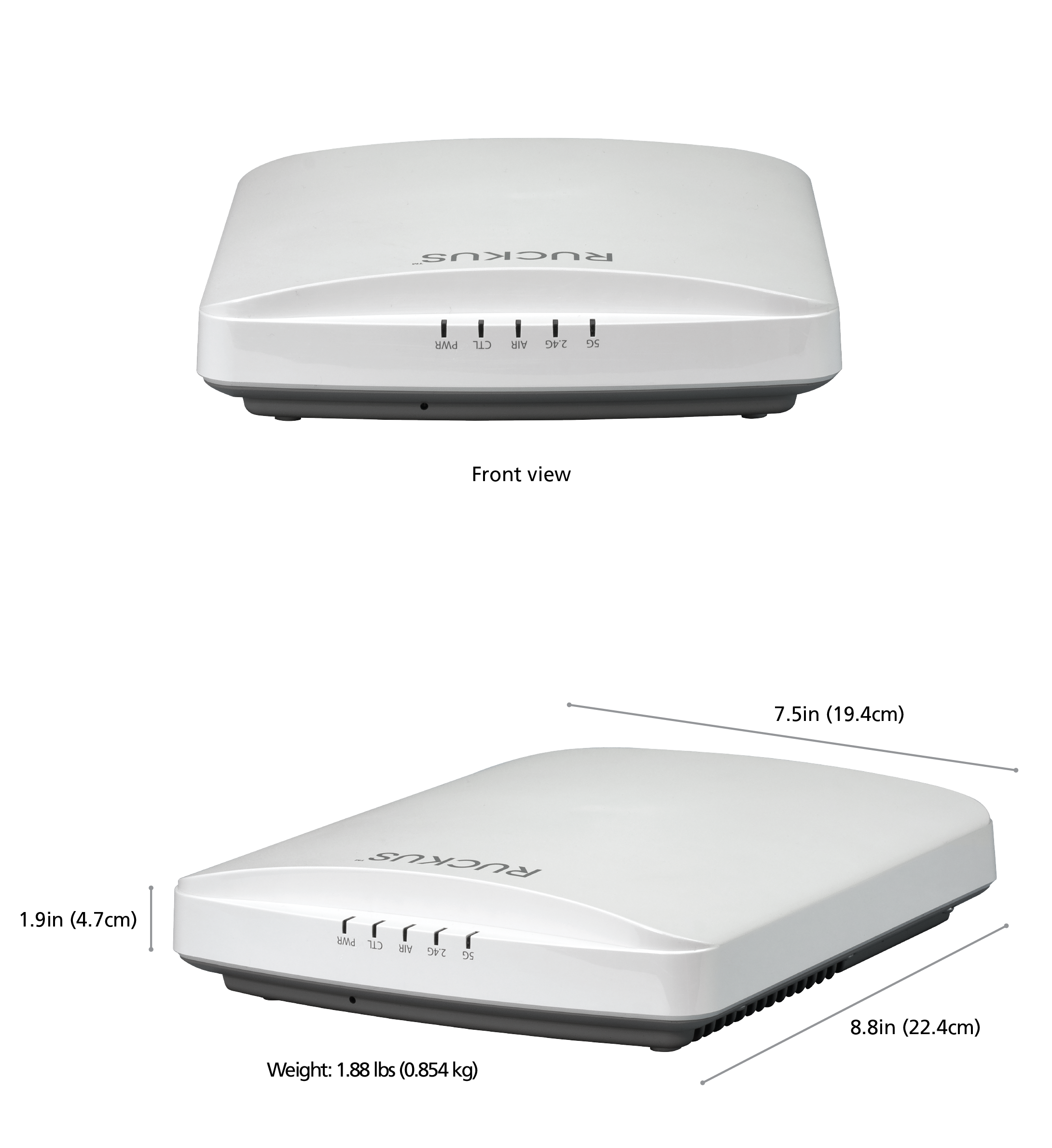
Benefits
Stunning Wi-Fi performance
Mitigate interference and extend coverage with patented BeamFlex®+ adaptive antenna technology utilizing several directional antenna patterns.
Serve more devices
Connect more devices simultaneously with six MU-MIMO spatial streams and concurrent dual-band 2.4/5GHz radios while enhancing device performance.
Converged access point
Allow customers to eliminate siloed networks and unify WiFi and non-WiFi wireless technologies into one single network by using built-in BLE and Zigbee, and also expanding to any future wireless technologies.
Automate optimal throughput
ChannelFly® dynamic channel technology uses machine learning to automatically find the least congested channels. You always get the highest throughput the band can support.
Multiple management options
Manage the R650 from the cloud, with on-premises physical/virtual appliances, or without a controller.
Better mesh networking
Reduce expensive cabling, and complex mesh configurations by checking a box with SmartMesh wireless meshing technology to dynamically create self-forming, self-healing mesh networks.
More than Wi-Fi
Support services beyond Wi-Fi with Ruckus IoT Suite, Cloudpath® security and onboarding software, SPoT Wi-Fi locationing engine, and SCI network analytics.
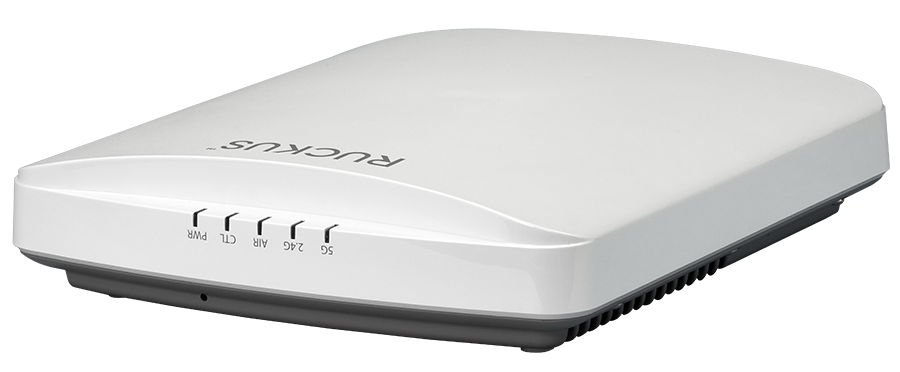
Access Point Antenna Pattern
Ruckus’ BeamFlex+ adaptive antennas allow the R650 AP to dynamically choose among a host of antenna patterns in real-time to establish the best possible connection with every device. This leads to:
- Better Wi-Fi coverage
- Reduced RF interference
Traditional omni-directional antennas, found in generic access points, oversaturate the environment by needlessly radiating RF signals in all directions. In contrast, the Ruckus BeamFlex+ adaptive antenna directs the radio signals per- device on a packet by-packet basis to optimize Wi-Fi coverage and capacity in real- time to support high device density environments. BeamFlex+ operates without the need for device feedback and hence can benefit even devices using legacy standards.
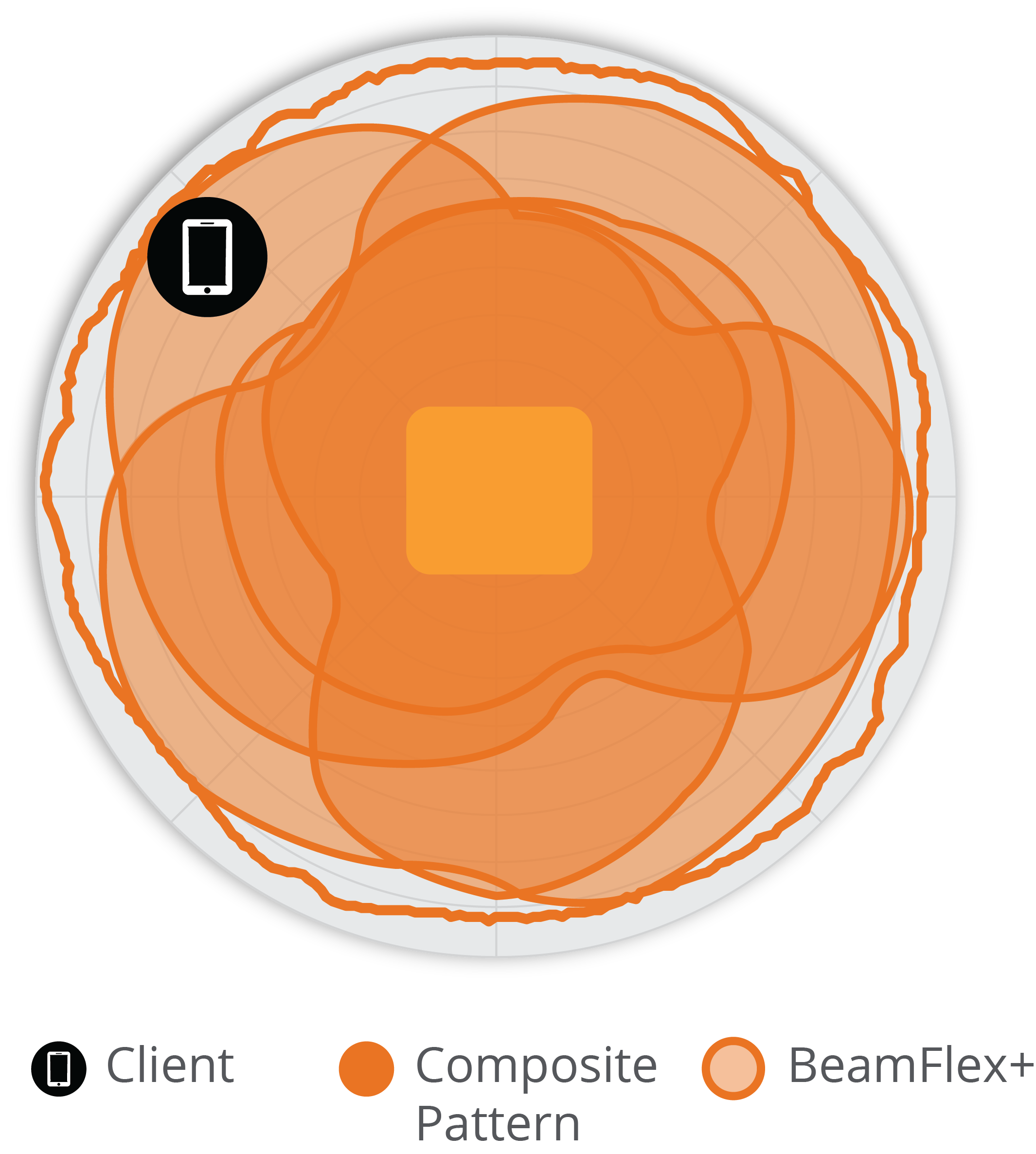
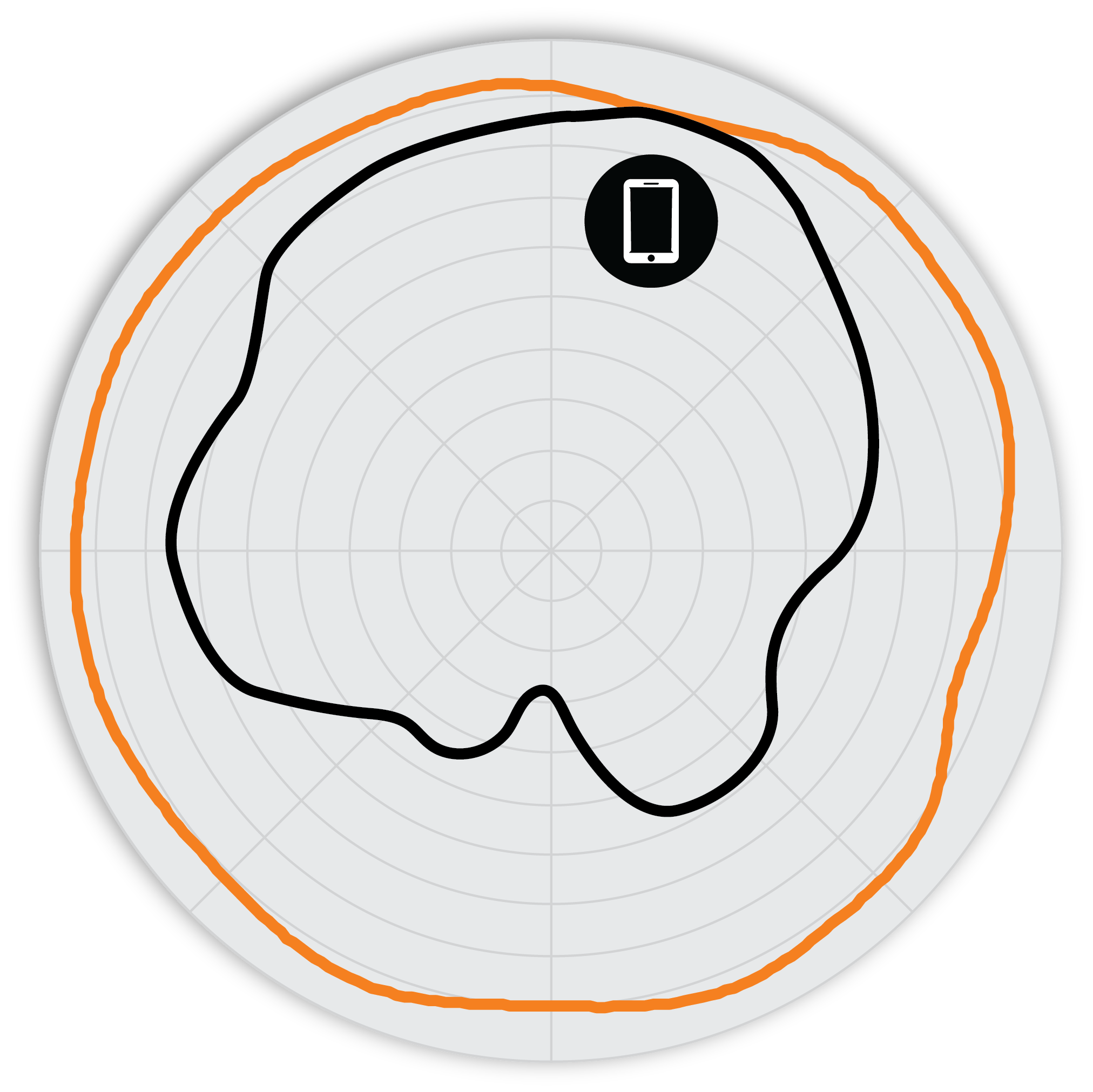
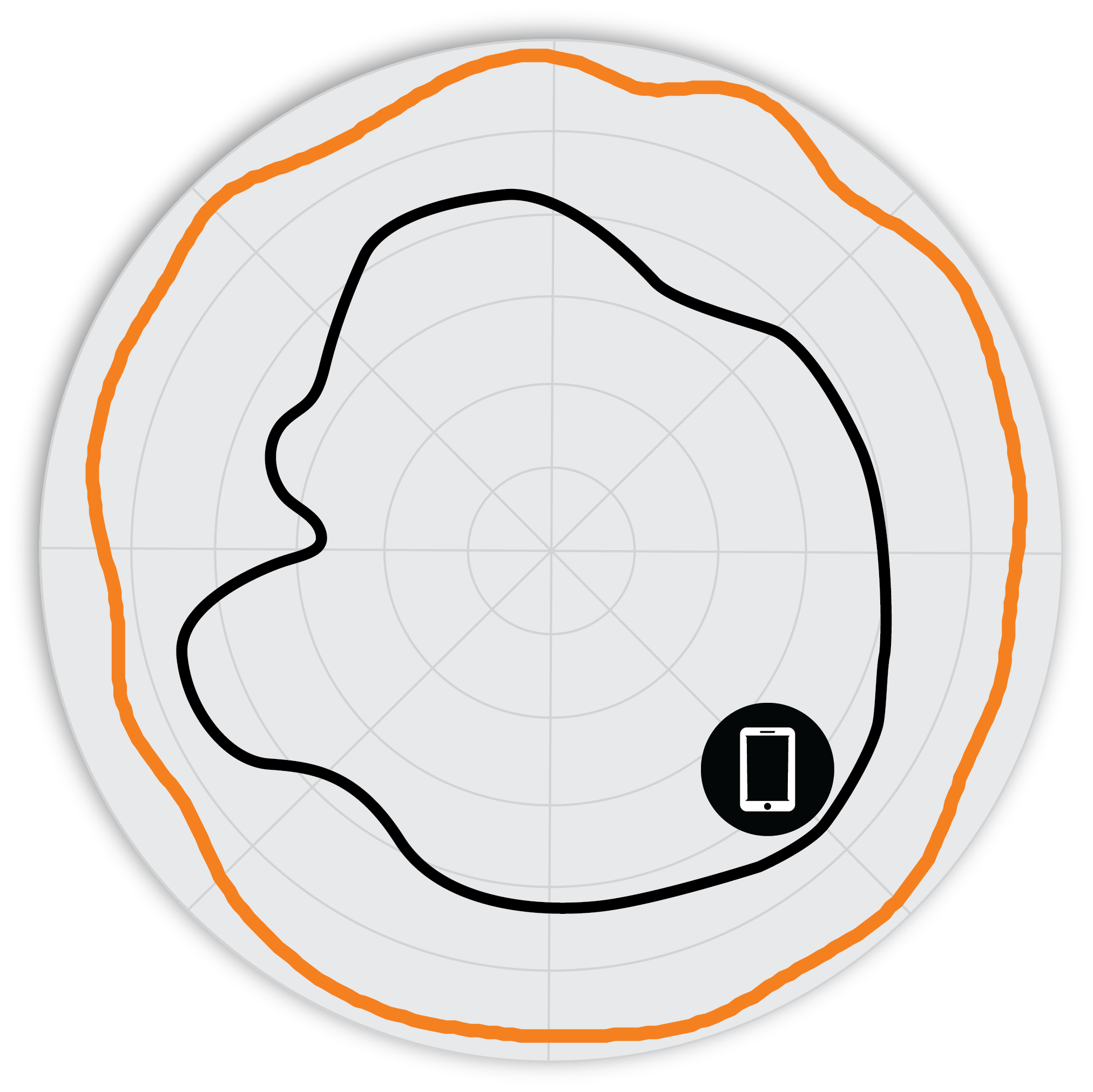
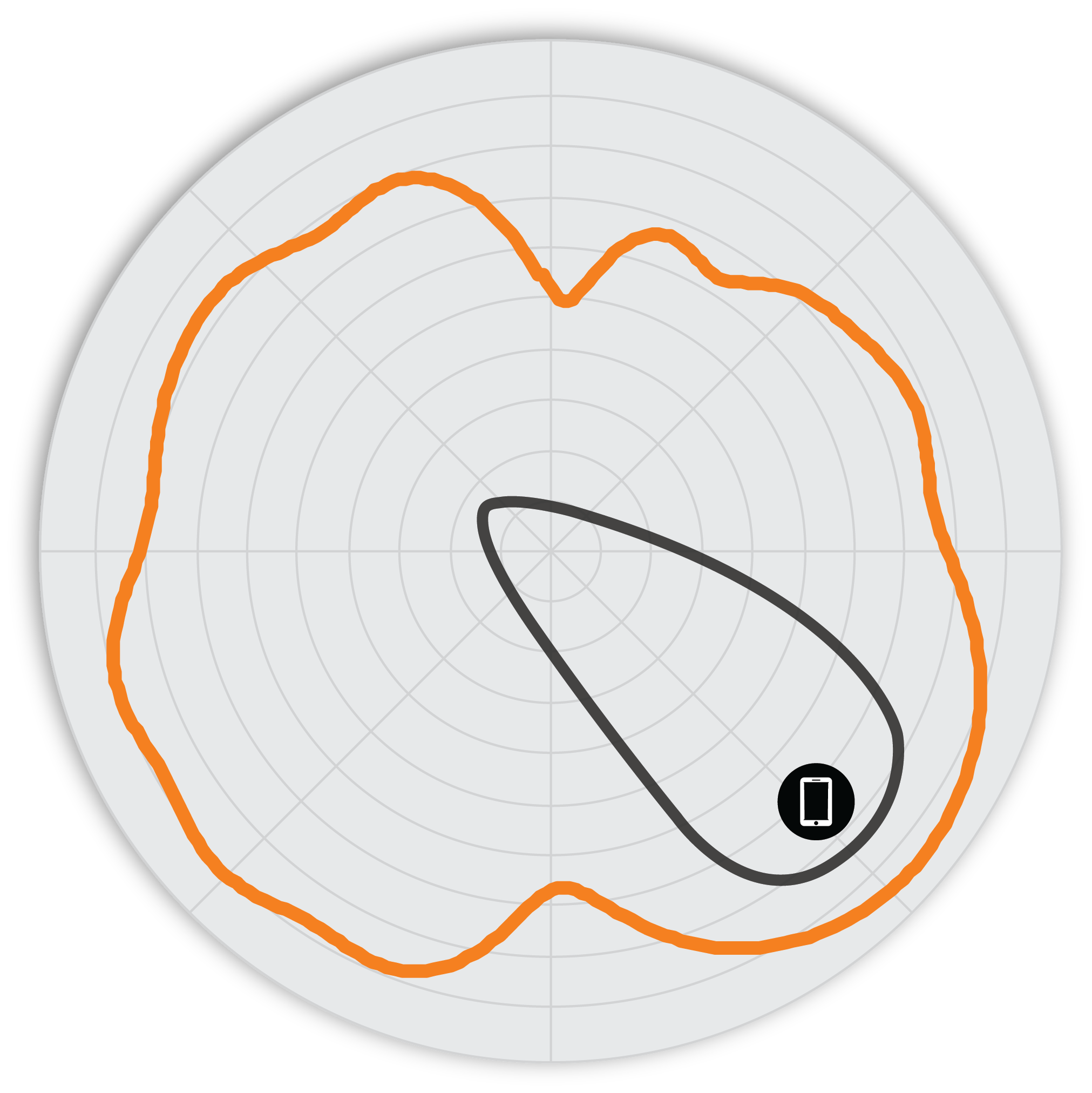
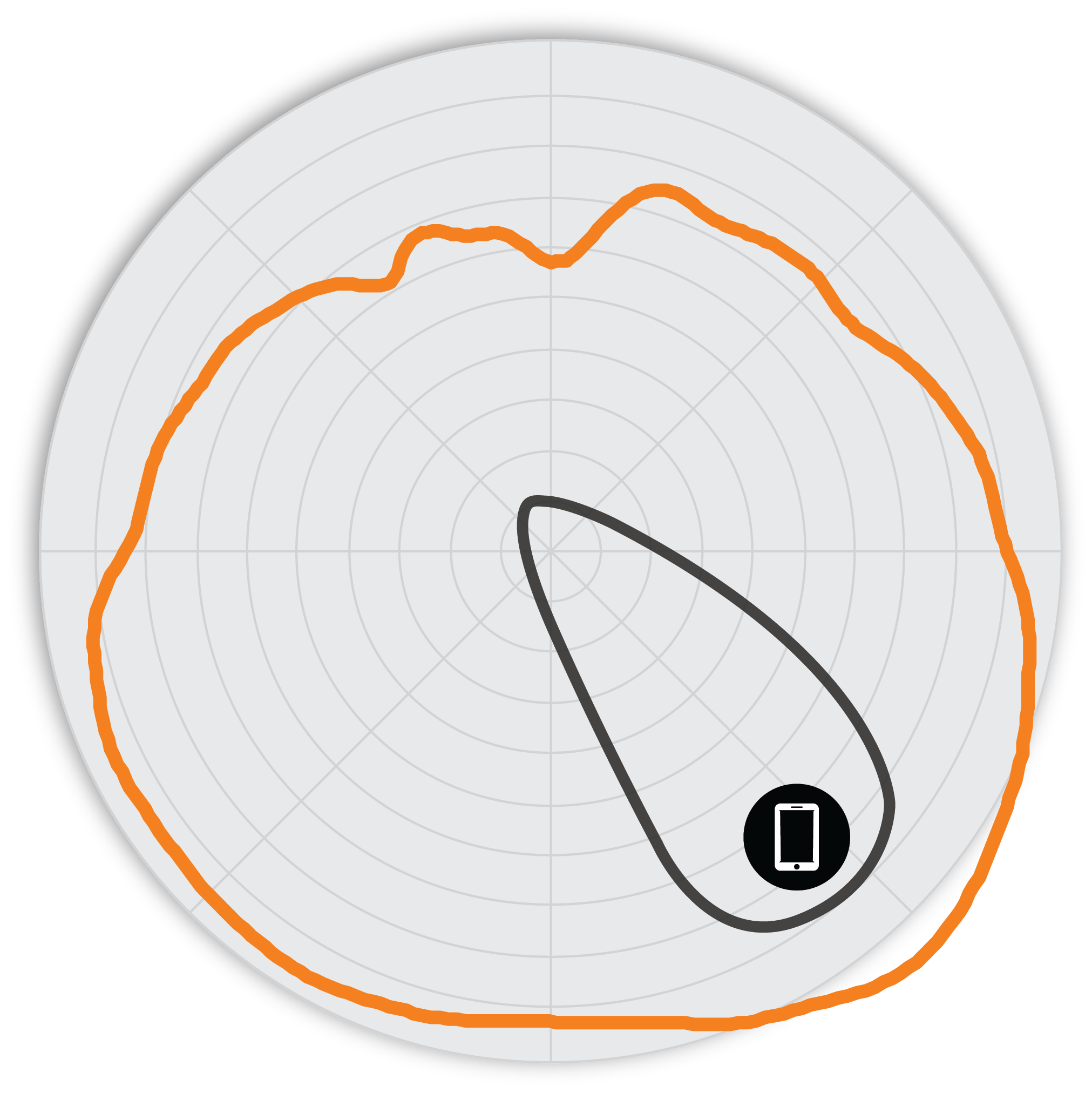
Note: The outer trace represents the composite RF footprint of all possible BeamFlex+ antenna patterns, while the inner trace represents one BeamFlex+ antenna pattern within the composite outer trace.
| Wi-Fi Standards |
|
| Supported Rates |
|
| Supported Channels |
|
| MIMO |
|
| Spatial Streams |
|
| Radio Chains and Streams |
|
| Channelization |
|
| Security |
|
| Other Wi-Fi Features |
|
| Antenna Type |
|
| Antenna Gain (max) |
|
| Peak Transmit Power (Tx port/chain + Combining gain) |
|
| Frequency Bands |
|
| HT20 | HT40 | VHT20 | VHT40 | ||||
|---|---|---|---|---|---|---|---|
| MCS0 | MCS7 | MCS0 | MCS7 | MCS0 | MCS7 | MCS0 | MCS7 |
| -93 | -75 | -90 | -72 | -93 | -75 | -90 | -72 |
| HE 20 | HE40 | ||||||
| MCS0 | MCS7 | MCS9 | MCS11 | MCS0 | MCS7 | MCS9 | MCS11 |
| -93 | -75 | -70 | -64 | -90 | -72 | -67 | -61 |
| VHT20 | VHT40 | VHT80 | |||||||||
|---|---|---|---|---|---|---|---|---|---|---|---|
| MCS0 | MCS7 | MCS8 | MCS9 | MCS0 | MCS7 | MCS8 | MCS9 | MCS0 | MCS7 | MCS8 | MCS9 |
| -98 | -80 | -77 | - | -95 | -77 | - | -72 | -92 | -74 | - | -69 |
| HE20 | HE40 | HE80 | |||||||||
| MCS0 | MCS7 | MCS9 | MCS11 | MCS0 | MCS7 | MCS9 | MCS11 | MCS0 | MCS7 | MCS9 | MCS11 |
| -98 | -80 | -75 | -70 | -95 | -77 | -72 | -67 | -92 | -74 | -69 | -64 |
| Rate | Pout (dBm) |
|---|---|
| MCS0 HT20 | 22 |
| MCS7 HT20 | 19 |
| MCS8 VHT20 | 18 |
| MCS9 VHT40 | 17 |
| MCS11 HE40 | 15 |
| Rate | Pout (dBm) |
|---|---|
| MCS0, VHT20 | 22 |
| MCS7, VHT40, VHT80 | 16.5 |
| MCS9, VHT40, VHT80 | 15 |
| MCS11, HE20, HE40, HE80 | 12.5 |
| Peak PHY Rates |
|
| Client Capacity |
|
| SSID |
|
| Antenna Optimization |
|
| Wi-Fi Channel Management |
|
| Client Density Management |
|
| SmartCast Quality of Service |
|
| Mobility |
|
| Diagnostic Tools |
|
| Controller Platform Support |
|
| Mesh |
|
| IP |
|
| VLAN |
|
| 802.1x |
|
| Tunnel |
|
| Policy Management Tools |
|
| IoT Capbale |
|
| Ethernet |
|
| USB |
|
| Physical Size |
|
| Weight |
|
| Mounting |
|
| Physical Security |
|
| Operating Temperature |
|
| Operating Humidity |
|
| Power Supply | Operating Characteristics | Max Power Consumption |
|---|---|---|
| 802.3af PoE |
| 12.25W |
| 802.3at PoE+ |
| PoE+ : 21.59W DC Power: 21.46W |
| Wi-Fi Alliance2 |
|
| Standards Compliance3 |
|
| Location Based Services |
|
| Network Analytics |
|
| Security and Policy |
|
| 901-R650-XX00 |
|
See Ruckus price list for country-specific ordering information.
Warranty: Sold with a limited lifetime warranty.
For details see: http://support.ruckuswireless.com/warranty.
| 902-0180-XX00 |
|
| 902-1170-XX00 |
|
| 902-1180-XX00 |
|
| 902-0120-0000 |
|
| 902-0195-0000 |
|
PLEASE NOTE: When ordering Indoor APs, you must specify the destination region by indicating -US, -WW, or -Z2 instead of XX. When ordering PoE injectors or power supplies, you must specify the destination region by indicating -US, -EU, -AU, -BR, -CN, -IN, -JP, -KR, -SA, -UK, or -UN instead of -XX.
For access points, -Z2 applies to the following countries: Algeria, Egypt, Israel, Morocco, Tunisia, and Vietnam.
1Max power varies by country setting, band, and MCS rate.
2For complete list of WFA certifications, please see Wi-Fi Alliance website.
3For current certification status, please see price list.
